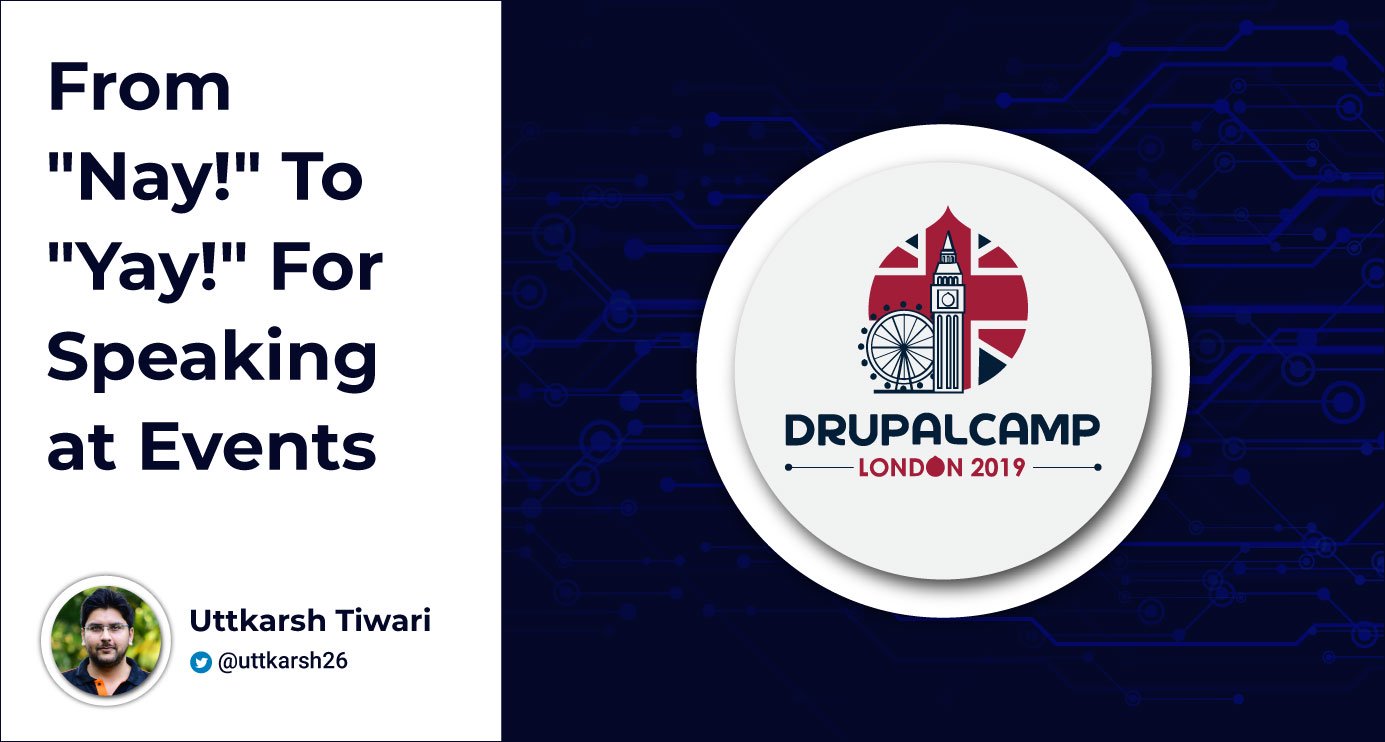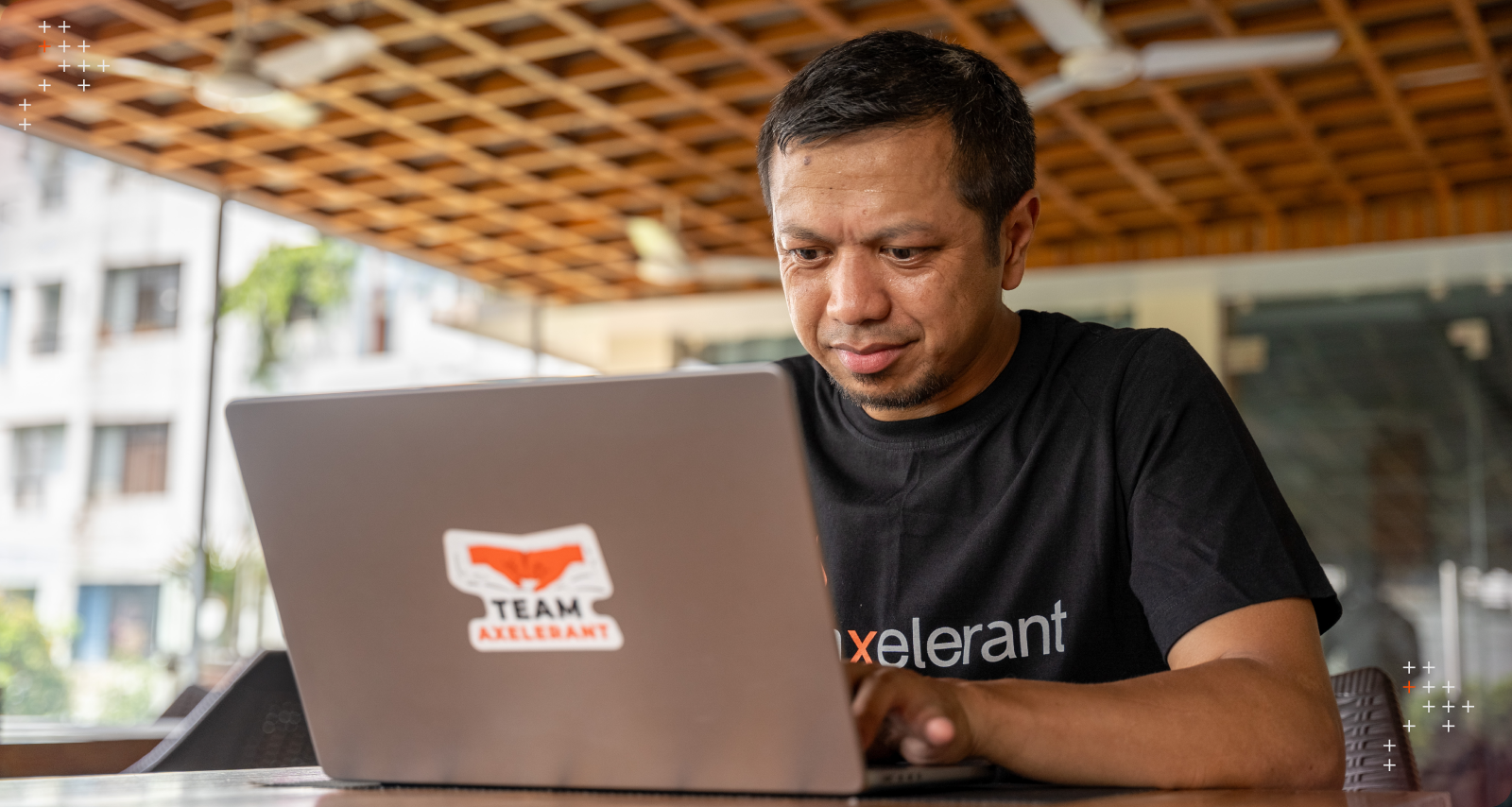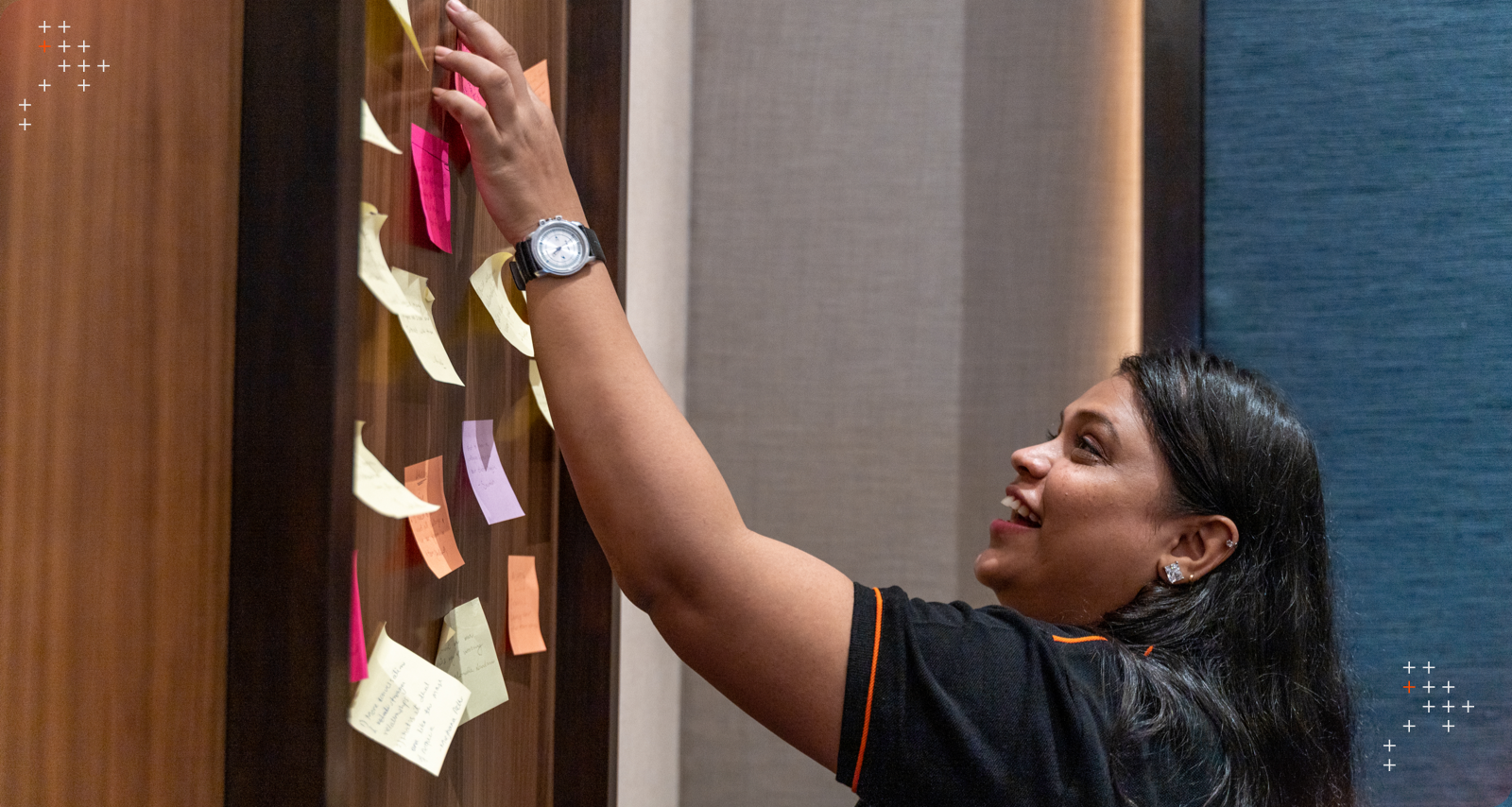Introduction
I recently visited London in March 2019, to attend DrupalCamp London. It was not only my first international trip but also my first event as a presenter.
The invitation to speak at DC London ’19 came with mixed feelings. Visiting London had been a childhood dream and I was awestruck by the mere thought of the trip. But at the same time, I was also being self-critical—what if I mess up? Will my session prove to be of any value to all the experienced folk out there? What if everything doesn’t go as planned? These emotions were extreme.
My Journey From “Nay!” To “Yay!”
My self-criticism was so high, I was secretly happy about the issues popping up in my visa approval process related to event sponsorship. Maybe I wouldn't have to go at all and life would be hassle-free again.
But eventually, I managed to overcome all my negative thoughts, travel to London and present at DC London 2019. And now, I'm really glad that I did it. Let me talk about countering the negativity here point by point, and also what was the end result.
- Submitting the Session/Topic: DrupalCamps receive submissions from all over the world. I was competing at an international level and honestly thought my chances were slim. Regardless, I resolved to jot down a thorough abstract or summary as best as I could to increase the chances of my session being selected by the committee. My efforts didn’t go to waste because my session was selected.
- The Process: Your session being selected isn't the end; it’s just the start. This was my first international trip, and I was excited, but thoughts about my finances, visa approval process, travel bookings, and other concerns kept bugging me. These thoughts had such a stronghold on me that they were impacting my ongoing project related activities and daily life. Later, I realized that this was the result of poor planning. Plus, some things were out of my control. To manage this, I reached out to friends, and spoke to my colleagues about event sponsorship issues, travel bookings, stay and some other arrangements that were being managed by my organization. After that, I could focus more on the visa approval process, currency conversion, and logistics. Everybody was extremely helpful and kind. They patiently handled my queries and concerns. All I had to do was reach out.
- Time Management: Time allocation and optimization was the skill that was tested the most for me. First, I had to create content and slides for the session. This required intense dedication. Second, I had to travel to a city approximately 400 miles away from my home for my visa appointment. Third, the company’s four-day annual retreat in Goa was just a week before the event itself. The timeline was jam-packed and stressing me out. I had to manage all this while keeping my leaves to a minimum because of certain project requirements. To be very honest, Axelerant’s remote culture helped me a lot. It allowed me to work over 4G internet while traveling on a six-hour train journey to Delhi and back. I was able to work on my slides in whatever limited time I was able to find during my travel and stay in Goa, which helped me a great deal in the final outcome. I can now say that it turned out to be a well-managed trip in the end without any hiccups.
- Topic Appeal or Scope: I was not sure if my topic was good enough or that it would appeal to anyone. I discussed this with my reporting manager. He convinced me that it was valuable. This is what he said: "Learning is a loop, Uttkarsh. It never ends. Even if someone attending your session already knows 99 percent of the things you will say, he still takes that 1 percent back with him—which serves the purpose of sharing." This thought gave me a huge confidence boost. After my session was done, a few people came up to me and said that they had been working on this for over 10 years but had never thought that this particular solution could be applied. A few others wanted the link to the code repository to implement something similar in their projects. They found my session valuable! If that doesn’t make you feel good, I'm afraid nothing else will!
- The Presentation and Preparation: Let me reiterate that this was my first presentation ever at any event, stage, topic, city or country. This thought itself was very intimidating for me. Imagine standing in front of a packed room with people from different countries, organizations, ethnicities, etc, and you have to keep your cool to do what you are meant to do when all eyes are gazing upon you. Anxiety is a must in these situations, isn’t it? I had just three years of experience in the industry, and I anticipated that my audience would include people much more experienced to me. Would they judge me on my skills, language fluency, presentation skills, fumbling, silly mistakes, and so on? To overcome this, first of all, I prepared well, and tried to tie up all the loose ends as best I could. I even gave a mock presentation within my company to my peers and asked for feedback. This proved very helpful. Some of the suggestions my colleagues gave were on point and very valuable. I tried to work on all of those to improve my content and choice of words. Overall feedback was constructive and positive, which again gave me extra faith in my endeavor. I also attended a few sessions at the event to see what I could learn from the other speakers. I made observations around what they were doing well and what I could do better in mine. I had a lot of takeaways from those sessions.
- The Feedback: I was very skeptical about the feedback because I doubted myself. I always thought that I am not good enough for this, that I will fumble because English is not my first language, or I will not be able to answer the questions at the end of the session. I am proud to tell you I was able to answer all the questions asked at the end of the session. But even if I didn’t know the answer, it wouldn’t have mattered much because as I mentioned earlier, we are always learning and it’s okay to not know things. What matters is to keep growing from there on. I got to know what could have been done better, and can now plan to improve on it for future events. I was surprised to see so many people come up to me to thank me for an informative and innovative session. People shared their Twitter handles, business cards, and engaged in conversations, which felt so good and paid off for all the mental stress, hard work, time and preparation I had put into this.
I encourage each and every one of you to share your knowledge. It’s okay to make mistakes. It's okay to not know everything. How this changed me can be judged from the fact that now I am always excited and on the lookout for topics which I can share and events I can go to, to meet new people, converse with them, learn things, make some great connections, and build my brand.
Let me summarize some points from my personal experience which I think are important for everyone to keep in mind if they share similar fears and anxieties:
- Do not underestimate yourself and your work. Just go for it.
- Trying your best is what matters. Not being perfect is okay.
- Discuss your concerns, doubts, and fears with supportive, experienced people.
- Be thorough, well-prepared and dedicated.
- Keep backups of your slides, materials, and content to avoid last-minute surprises.
- Manage your time well. Make it a priority.
- Take advice from people who have already done what you are doing. That always helps.
- Maintain cordial relations with people. They are the ones who will encourage and support you. Be friendly, gentle and kind.
- Be open to feedback and willing to work on it.
- Take pauses while presenting and connect with your audience.
- Keep it simple, and stick to the core of your topic.
- Use your body and hand gestures.
- Relax. Don’t rush and pause to have a sip of water if you need to.
- Allow time for your previous point to be completely absorbed by the audience before jumping onto the next one.
- Try to include humor via stories, GIFs or slides to lighten the mood if possible.
- Be confident and enjoy yourself. You will do a great job.
- Never stop sharing.
Best of luck!

Uttkarsh Tiwari, PHP/Drupal Engineer - L3
Off work, he likes watching a new TV series with friends, or turning up the volume on the latest EDM track on a drive around town.

 We respect your privacy. Your information is safe.
We respect your privacy. Your information is safe.



Leave us a comment